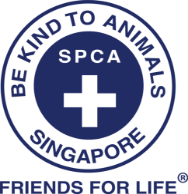Issues Relating to Laboratory / Animal Testing

No to Animal Testing
[su_youtube url=”https://www.youtube.com/watch?v=G393z8s8nFY&ab_channel=TheHumaneSocietyoftheUnitedStates”]
We are opposed to all experiments or procedures which cause pain, suffering, or distress to animals.
You can help by being a caring consumer and not buying products that are tested on animals.
Check out this site for brands that DO or DO NOT test on animals.
Animal Experimentation: Laboratory Animals In Singapore
We are opposed to all experiments or procedures that cause pain, suffering, or distress to animals. This is in line with the stand of leading animal organisations all over the world, including the Royal Society for the Prevention of Cruelty to Animals in the United Kingdom (RSPCA).
National Guidelines For Laboratory Animals In Singapore
2003
In 2003, the National Advisory Committee for Laboratory Animal Research (NACLAR) was formed to establish national guidelines for the treatment and utilisation of animals for scientific purposes in Singapore. We provided feedback on the guidelines as requested by NACLAR. We also forwarded comments and suggestions by the RSPCA to NACLAR. RSPCA and our feedback were not taken into account in the published guidelines, which we found inadequate and would lead to unnecessary suffering for the animals involved.
2005
In February 2005, the RSPCA’s Head and Deputy Head of Research Animals Department, Ms Maggy Jennings and Ms Penny Hawkins, wrote to Professor Bernard Tan, Head of NACLAR. They stated that standards for husbandry and care of laboratory animals in Singapore were outdated. These included a lack of adequate exercise, normal social behaviour or enrichment through the use of extremely small cages.
The RSPCA advised NACLAR to seriously consider revising its guidelines to allow animals an acceptable level of welfare and improve scientific validity. The RSPCA’s Director of Science, Arthur Lindley, also appealed to Dr. Ngiam Tong Tau, (then) Chief Executive Officer of the Agri-food & Veterinary Authority (AVA) expressing RSPCA’s concerns and asking for major improvements in the guidelines. We also wrote to NACLAR supporting the RSPCA’s recommendations.
The RSPCA received a highly unsatisfactory reply from Professor Tan. He said NACLAR’s guidelines were based “on the best practices of countries such as Australia, Canada, New Zealand and the U.S.”. However, as the RSPCA has maintained, these are outdated Institute for Laboratory Animal (ILAR) guidelines, which are “no way even good practice, let alone best”.
2006
In 2006, we wrote to NACLAR to ask if there was any progress in relation to improving standards of husbandry and care for laboratory animals. There was no response.
2008
In December 2008, we wrote again to Professor Tan, including information on the European Commission’s new guidelines for housing and care of laboratory animals. RSPCA had also provided substantial expert input to these guidelines. We asked NACLAR again to review its guidelines “to incorporate better living conditions for the animals kept in laboratories here in Singapore”. No reply was received.
At Singapore’s first Animal Welfare Symposium in 2008, it was revealed that 250,000 animals died in research in 2007 in Singapore.
In line with the three R’s – Replacement, Reduction and Refinement – we have also expressed to NACLAR that we hope steps are being taken to replace animals in research with alternative methods.
2010
ILAR has updated their guidelines most recently in 2010. The European Union has also adopted a directive on the protection of animals used in scientific research in the same year.
2011
We wrote to the AVA in November 2011 to ask if the NACLAR guidelines had been updated in terms of the standards of animal husbandry. AVA replied by saying that the NACLAR Guidelines were still “current” as of the time of writing (November 2011). They said they were aware of the new developments in laboratory animal welfare guides in Europe, and would highly recommend to the NACLAR Committee to take these into consideration for the review of the NACLAR Guidelines.
2012
To the best of our knowledge, these guidelines, which were outdated when they were enacted, have not been changed since 2004.
What Else SPCA Has Done
We have sent the book “From Guinea Pig to Computer Mouse” to 13 Junior Colleges, four Polytechnics, the National University of Singapore and the Nanyang Technological University. Written by Nick Jukes and Mihnea Chiuia (and published by the International Network for Humane Education), the book, targeted at learning institutions, suggests alternatives to live animals for experimentation.
Please refer to the link below for alternatives:
http://www.interniche.org/news/new-interniche-website-humane-education-and-alternatives
We have also written several letters to the press regarding this issue.
For more information on alternatives to animal experimentation, please visit:
– RSPCA’s website – http://www.rspca.org.uk/sciencegroup/researchanimals/-/article/RAD_ResearchAnimals
– Johns Hopkins University Center for Alternatives to Animal Testing – http://caat.jhsph.edu/
– Dr Hadwell Trust – http://www.drhadwentrust.org/
